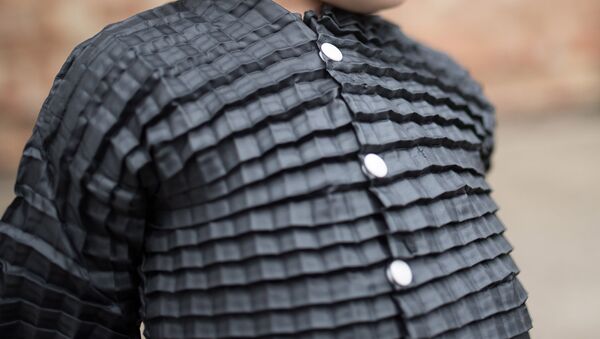According to a report by the Guardian, Yasin became frustrated with how fast his own child grew and how much money his family spent buying new and bigger clothes.
Data shows that most children can grow up to seven sizes between age 0 and 3, as this youngest period is also a period of significant body expansion, when compared with later life.
Besides the obvious burden on the family budget, the need to acquire a lot of clothes puts huge pressure on the environment, particularly due to water required in production and manufacture, as well as carbon dioxide emissions.
Yasin, who studied aeronautical scientific principles for his engineering degree, came up with a unique material that features a negative Poisson's ratio. While most material becomes thin as we stretch it, some materials can be shown to increase in thickness.
@RyanMarioYasin inspired by #origami designed #PetitPli expandable #clothes that grow w your #kids 4-36 months. #engineering meets #fashion pic.twitter.com/1EcRWC0mXG
— Effendy D. Wirawan (@EffendyDW) 9 сентября 2017 г.
Yet the Petit Pli — as the trademarked product is called — is intended as a strictly practical assist for the family budget, and is built to withstand hundreds of washings, thanks to heat treatment that keeps the folds permanently in place. According to Yasin, the fabric will last from a child's earliest days to an average age of 3.
Yasin has received $2000 in award money as an intermediate Dyson award level. Should he win the final international stage, he would be eligible for as much as $30,000.
He intends to spend this money to push Petit Pli to retailers and mass production.
"It's just great to have that backing and recognition of my solution," he said.
"The prize money is an added bonus, but I know how I will use it. In addition to supporting my R&D, it will help me form an interdisciplinary team of experts to take Petit Pli to the next level: putting it in the hands of parents worldwide and making a tangible difference to the way we consume resources in the fashion industry."



